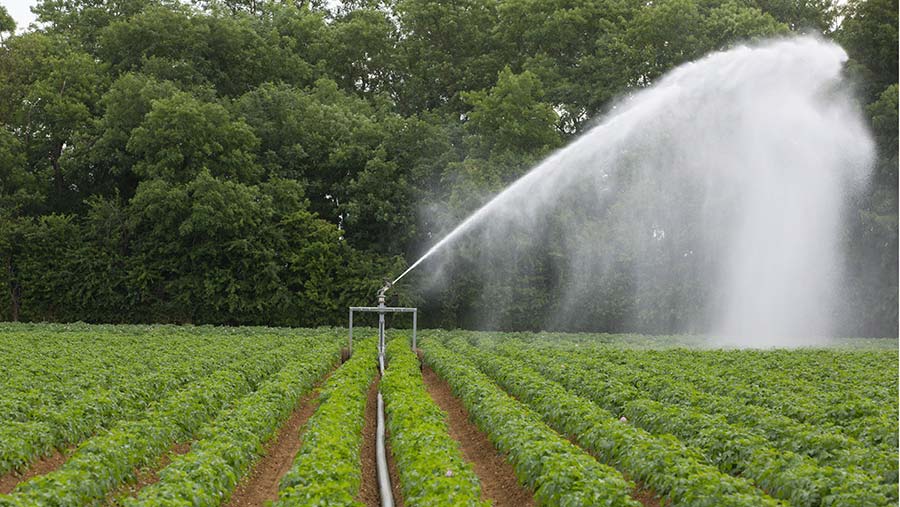Farmers ‘must have access to fair share of water’
 © Tim Scrivener
© Tim Scrivener Government plans to stop compensating farmers for reducing or revoking water abstraction licences are unjustified, rural business leaders have warned.
In a response to a Defra consultation, the Country Land and Business Association (CLA) said any variation of licences to abstract water should be used only as a last resort.
Rather than penalising abstractors, the CLA said water companies should be encouraged to reduce leakages and consumers pushed to be use water more efficiently.
See also: Act now to secure water supplies, farmers warned
The government should also encourage farmers to trade water and invest in reservoirs and winter storage facilities, the CLA said.
CLA chief land use policy adviser Susan Twining said: “It is simply wrong for the government to propose revoking licences without proper redress.”
‘Full compensation’
Many abstraction licences had been in place for decades and formed a vital part of the asset base for many rural businesses, Ms Twining said.
“It is only fair that they should generate full compensation for commercial losses if taken away.”
The consultation follows commitments made by the government to ensure a clean and plentiful water supply and to reduce the risks of harm from environmental hazards.
In addition, the water industry is to invest £50bn over the next five years to improve water quality and drought resilience across the UK.
The CLA’s response also highlights concerns that farmers must have access to their fair share of fresh water for efficient crop and livestock production.
It argues that Defra should be taking into account the needs of farmers and landowners – and argues that water for food should be classified as an “essential use”.
Ms Twining said: “Water for food production should be equal in status to water for public supply.”
Drought situations
“This would mean added protection in drought situations, additional investment and research in water management and the building of resilience through better winter storage,” she said.
The CLA’s response comes as Environment Agency chief executive Sir James Bevan warned that the UK could run short of water within 25 years.
“Unless we take action to change things, we will not have enough water to supply our needs,” he told a Waterwise conference in London on Tuesday (19 March).
“Climate change is what’s happening,” Sir James said. “It means that in the UK we will have hotter and drier summers. By 2040, we expect more than half of our summers to exceed 2003 temperatures.
Unpredictable rainfall
That will mean more water shortages: by 2050, the amount of water available could be reduced by 10-15%, with some rivers carrying 50%-80% less water during the summer months.
“It will mean higher drought risk, caused by the hotter drier summers and less predictable rainfall,” he said.
Jon Birchall, director of agribusiness at the rural business adviser Carter Jonas, said water abstraction was an established means through which farmers irrigated their land.
“Looking ahead, it is likely that summer licences will be harder to obtain, which will demand a step-change in water resource management for many farmers,” Mr Birchall said.
“Constructing adequate water storage solutions that are strategically located will be increasingly important to ensure that yields of high-value crops are not compromised.”
